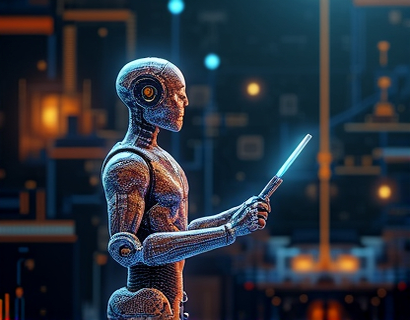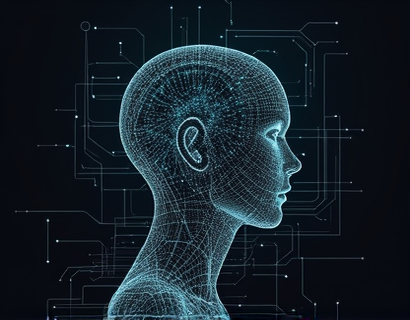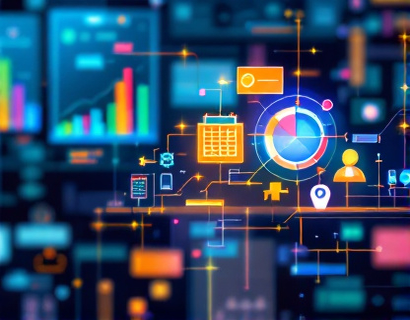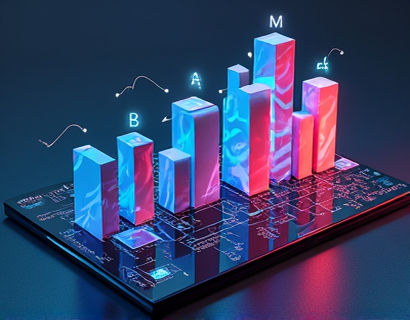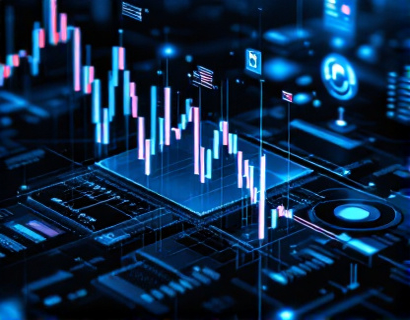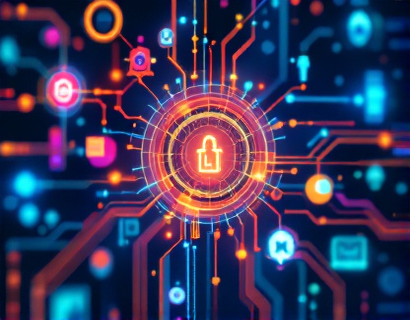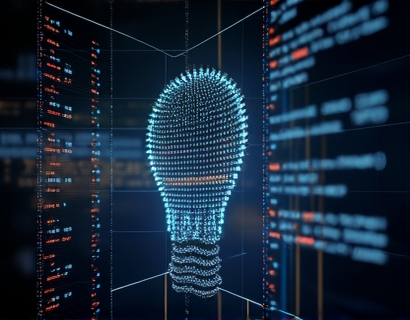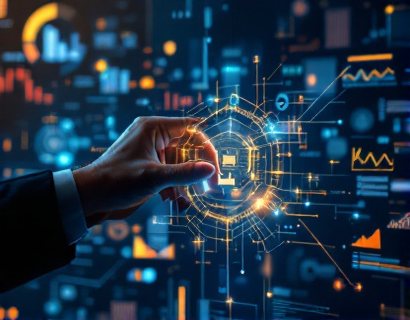AI and Crypto: Pioneering Seamless Digital Transformation with Advanced Blockchain Solutions
The digital landscape is undergoing a profound transformation, driven by the convergence of artificial intelligence (AI) and cryptocurrency. This synergy is not just a trend; it represents a fundamental shift in how businesses operate, innovate, and secure their digital assets. As organizations strive to maximize their digital transformation efforts, the integration of AI and blockchain technology emerges as a powerful catalyst for driving efficiency, security, and innovation.
The Intersection of AI and Blockchain
At its core, blockchain technology offers a decentralized and transparent framework for recording transactions, while AI provides the analytical power to derive insights from vast amounts of data. When combined, these technologies create a robust ecosystem that enhances decision-making processes, optimizes operations, and fosters trust among stakeholders.
Enhancing Business Operations
One of the most significant advantages of integrating AI with blockchain is the enhancement of business operations. AI algorithms can analyze blockchain data in real-time, providing businesses with actionable insights that drive efficiency. For instance, supply chain management can benefit immensely from this integration. By utilizing AI to analyze data from blockchain networks, companies can track products in real-time, predict demand fluctuations, and optimize inventory levels.
Moreover, AI can automate various processes within the blockchain framework, reducing the need for manual intervention. Smart contracts, powered by AI, can execute transactions automatically when predefined conditions are met, streamlining operations and minimizing errors. This automation not only saves time but also reduces operational costs, allowing businesses to allocate resources more effectively.
Fostering Security
Security is a paramount concern in the digital age, especially with the rise of cyber threats. The combination of AI and blockchain offers a formidable defense against these threats. Blockchain's inherent characteristics, such as immutability and decentralization, provide a secure environment for data storage and transactions. AI enhances this security by continuously monitoring blockchain networks for anomalies and potential threats.
Machine learning algorithms can analyze patterns in transaction data, identifying unusual activities that may indicate fraud or cyberattacks. By leveraging AI's predictive capabilities, businesses can proactively address security vulnerabilities before they escalate into significant issues. This proactive approach not only protects sensitive information but also builds trust with customers and partners.
Driving Innovation
Innovation is the lifeblood of any successful organization, and the integration of AI and blockchain is a powerful driver of new ideas and solutions. The ability to analyze vast datasets in real-time allows businesses to identify emerging trends and customer preferences, enabling them to develop innovative products and services that meet market demands.
Furthermore, the decentralized nature of blockchain fosters collaboration among various stakeholders. By providing a transparent platform for sharing information, businesses can collaborate more effectively, leading to the co-creation of innovative solutions. This collaborative environment encourages creativity and experimentation, essential components of innovation.
Competitive Edge in the Digital Landscape
In today's rapidly evolving digital landscape, gaining a competitive edge is crucial for businesses. The integration of AI and blockchain not only enhances operational efficiency but also positions organizations as leaders in their respective industries. Companies that embrace these technologies are better equipped to adapt to changing market conditions and customer expectations.
For instance, financial institutions leveraging AI and blockchain can offer faster and more secure transactions, attracting tech-savvy customers who prioritize efficiency and security. Similarly, retailers utilizing AI-driven insights from blockchain data can personalize customer experiences, leading to increased customer loyalty and satisfaction.
Case Studies: Real-World Applications
Several organizations have successfully integrated AI and blockchain to drive digital transformation. These case studies illustrate the practical applications and benefits of this powerful combination.
Supply Chain Management
One notable example is the use of AI and blockchain in supply chain management. Companies like IBM and Maersk have collaborated to create a blockchain-based platform that enhances transparency and traceability in the supply chain. By integrating AI, these companies can analyze data from various sources, predicting potential disruptions and optimizing logistics operations.
Healthcare
In the healthcare sector, the integration of AI and blockchain is revolutionizing patient data management. Companies like Chronicled are utilizing blockchain to securely store patient records while employing AI to analyze health data for better patient outcomes. This combination not only enhances data security but also enables healthcare providers to deliver personalized treatments based on real-time insights.
Financial Services
The financial services industry is also witnessing the transformative power of AI and blockchain. Companies like Ripple are leveraging blockchain technology to facilitate cross-border payments while utilizing AI to enhance fraud detection and risk assessment. This integration streamlines transactions, reduces costs, and improves overall security.
Challenges and Considerations
While the integration of AI and blockchain presents numerous benefits, it is not without challenges. Organizations must navigate various hurdles to successfully implement these technologies.
Data Privacy and Security
Data privacy is a significant concern when integrating AI and blockchain. Organizations must ensure that sensitive information is protected while leveraging AI for analysis. Implementing robust security measures and adhering to regulatory standards is essential to mitigate risks associated with data breaches.
Scalability
Scalability is another challenge that organizations face when integrating AI and blockchain. As transaction volumes increase, maintaining the performance of blockchain networks can become difficult. Businesses must invest in scalable solutions that can handle growing data demands without compromising efficiency.
Skill Gap
The successful integration of AI and blockchain requires a skilled workforce. Organizations may face challenges in finding professionals with expertise in both technologies. Investing in training and development programs can help bridge this skill gap, ensuring that teams are equipped to leverage the full potential of AI and blockchain.
The Future of AI and Blockchain
The future of AI and blockchain is promising, with continued advancements expected in both fields. As technology evolves, the integration of these two powerful tools will become increasingly sophisticated, unlocking new possibilities for businesses across various industries.
Emerging trends such as decentralized finance (DeFi) and non-fungible tokens (NFTs) are just the beginning. The combination of AI and blockchain will likely lead to the development of innovative applications that enhance user experiences and drive economic growth.
Conclusion
In conclusion, the integration of AI and cryptocurrency is pioneering a new era of digital transformation. By merging these cutting-edge technologies, businesses can drive efficiency, enhance security, and foster innovation in the blockchain era. As organizations navigate the complexities of the digital landscape, embracing the synergy of AI and blockchain will provide a competitive edge, enabling them to thrive in an ever-evolving environment. The future is bright for those who harness the power of these technologies, paving the way for a more efficient, secure, and innovative digital world.








